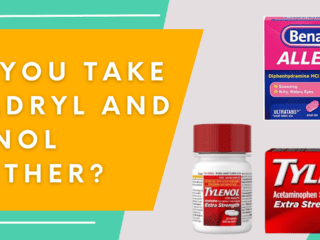As is the case with any other medication, there may be some instances where Adderall interactions can occur. As such, it’s always important for patients to discuss use of this medication with their medical provider, and disclose any and all medical conditions, medical history, and any medications (both prescription and over the counter) they may be taking.
Drug Interactions
According to the U.S. National Library of Medicine, drugs that may interact with Adderall XR include the following.
- Monoamine oxidase inhibitors (MAO inhibitors, MAOIs)
- Serotonergic drugs
- CYP2D6 inhibitors
- Alkalinizing agents
- Acidifying agents
- Tricyclic antidepressants
- Proton pump inhibitors
Please note that this list may not be complete, and other interactions with drugs not listed here may occur.
MAO Inhibitors
Monoamine oxidase inhibitors, or MAOIs, are antidepressants that work by inhibiting monoamine oxidase. By inhibiting this enzyme (specialized protein), MAOIs can increase levels of the neurotransmitters serotonin, dopamine, and norepinephrine. Examples of these medications include:
- Isocarboxazid (Marplan)
- Moclobemide (Aurorix, Manerix)
- Rasagiline (Azilect)
Concomitant (at-the-same-time) use of MAOIs and Adderall can result in a hypertensive (high blood pressure) crisis. For this reason, patients should not take Adderall if they are also taking MAOIs. Similarly, patients should wait at least 14 days (2 weeks) after stopping MAOIs before starting Adderall.
Serotonergic Drugs
Serotonergic drugs are drugs that affect levels of serotonin, the “feel-good chemical” that is strongly associated with mood. Examples of serotonergic drugs include:
- Fluoxetine (Prozac)
- Sertraline (Zoloft)
- Venlafaxine (Effexor XR)
Concomitant use of Adderall and serotonergic drugs can result in a potentially life-threatening condition known as serotonin syndrome. This condition occurs when there is too much serotonin in the central nervous system (CNS). Symptoms of this condition include:
- Agitation
- Confusion
- Diarrhea
- Hypertension (high blood pressure)
- Muscle incoordination
- Pupil dilation (widening)
- Sweating
- Tachycardia (fast heart rate)
Anyone who suspects they have serotonin syndrome should seek emergency medical attention right away. If the medical provider decides to prescribe both simultaneously, they should start their patients at lower doses and then closely monitor patients for potential signs of serotonin syndrome.
CYP2D6 Inhibitors
Cytochrome P450 2D6, or CYP2D6, is an enzyme that helps the body process and eliminate medications. CYP2D6 inhibitors, as the name suggests, inhibit the function of this enzyme. Examples of CYP2D6 inhibitors include:
- Bupropion (Wellbutrin)
- Citalopram (Celexa)
- Paroxetine (Paxil)
- Quinidine (Quinaglute, Quinidex)
Simultaneously taking CYP2D6 inhibitors and Adderall can reduce the body’s ability to eliminate this drug. As a result, Adderall can build up in the system to the point that the patient is at risk for serotonin syndrome. If the medical provider decides to prescribe both simultaneously, they should start their patients at lower doses and then closely monitor patients for potential signs of serotonin syndrome.
Alkalinizing Agents
Alkalizing agents are medications that can treat conditions affected by low pH; these terms means that these drugs can help if a patient suffers from blood that is acidic. Examples of alkalinizing agents include:
- Acetazolamide (Diamox)
- Calcium carbonate (found in Tums)
- Sodium bicarbonate (found in baking soda)
Concomitant use of alkalinizing agents and Adderall can result in elevated levels of Adderall in the system. As such, patients should avoid taking alkalinizing agents while on this medication.
Acidifying Agents
Acidifying agents, as the name implies, increase acidity. Specifically, they can reduce stomach pH to help the patient maintain a proper acid-base balance. Examples of these agents include:
- Ammonium chloride
- Guanethidine
- Reserpine
Using these agents together with Adderall can reduce the effectiveness of this medication. As a result, medical providers may have to increase Adderall dosage when the patient uses acidifying agents.
Tricyclic Antidepressants
Tricyclic antidepressants are antidepressants named for their three-ring structure. Examples of these antidepressants include:
- Amitriptyline (Elavil)
- Imipramine (Tofranil)
- Nortriptyline (Pamelor)
- Trimipramine (Surmontil)
Concomitant use of tricyclic antidepressants and Adderall can result in higher concentrations of amphetamine in the brain and increase the drug’s effects on the cardiovascular system. As a result, most experts advise against using these medications at the same time. When used together, medical providers must closely monitor their patients for signs of adverse effects.
Proton Pump Inhibitors
Proton pump inhibitors (PPIs) reduce production of stomach acid. Example of PPIs include:
- Dexlansoprazole (Dexilant)
- Lansoprazole (Prevacid)
- Omeprazole (Prilosec OTC)
PPIs can increase the absorption of amphetamines and may increase the levels of amphetamine that gets into your system, resulting in an increased effect of the drug. As such, medical providers will need to closely monitor their patients who take PPIs and Adderall simultaneously.
Adderall and Wellbutrin
Wellbutrin (bupropion) is a common antidepressant. Given its status as a CYP2D6 inhibitor, concomitant use of this medication and Adderall can increase the risk of serotonin syndrome. As such, patients should either avoid taking these medications simultaneously or have their medical providers monitor them closely for signs of adverse effects.
Adderall and Lexapro
Lexapro (escitalopram) is a selective serotonin reuptake inhibitor (SSRI), a popular class of drugs that can treat conditions like anxiety and depression. Using SSRIs and Adderall together can increase the risk of the potentially life-threatening condition known as serotonin syndrome.
Adderall and Prozac
Like Lexapro, Prozac (fluoxetine) is an SSRI. Concomitant use of Prozac and Adderall can increase the risk of serotonin syndrome.
Adderall and Zoloft
Zoloft (sertraline) is a popular antidepressant, similar to Lexapro (escitalopram) and Prozac (fluoxetine). Using Zoloft and Adderall together can increase the risk of adverse reactions, such as serotonin syndrome.
Adderall and Viagra
Lesser-known side effects of Adderall are erectile dysfunction (ED) and decreased libido (sex drive). Since the FDA does not report negative reactions between these two medications, patients concerned about either ED or their libido while taking Adderall can talk to their medical provider about taking Viagra (sildenafil).
Adderall and Gabapentin
Unlike Adderall, gabapentin is a central nervous system (CNS) depressant, which means it helps calm this system. As such, using both together could result in decreased efficacy of Adderall. Patients should always ask their medical providers about using gabapentin with this medication before taking the two together.
Adderall and Benadryl
Benadryl (diphenhydramine) is an antihistamine, which means it helps block the action of histamine. Histamine is a compound that the immune system releases in response to injuries, inflammation, or allergies. One noticeable side effect of Benadryl and other antihistamines is drowsiness, which could counteract the stimulating effects of Adderall.
Vitamins
Patients should consult with their medical providers before taking any vitamins (prescription or over the counter) with Adderall.
Effexor
Effexor XR is a serotonin-norepinephrine reuptake inhibitor (SNRI), a class of medications that can help treat depression and other conditions. Use of this drug and Adderall can result in adverse effects, such as heightened risk of serotonin syndrome.
Claritin
Claritin (loratadine) is a popular over-the-counter (OTC) antihistamine, or allergy medication. Since this medication can cause drowsiness, it can reduce the effectiveness of amphetamines like Adderall.
Supplements
Patients should discuss with their medical providers whether or not they should add supplements to their routine when taking amphetamines.
Food Interactions
Sometimes the foods we eat and the beverages we drink can also interact with our medications. Food and beverages such as acidic food, juices, or vitamin C may reduce amphetamine levels and decrease its effectiveness.
Adderall and Alcohol
For more information, please visit our page on Adderall and alcohol interactions.
Adderall and Caffeine
Caffeine, like Adderall, is a central nervous system (CNS) stimulant. In other words, it helps excite this system. Intaking caffeine while taking Adderall can result in a synergistic effect, which means that they can work together to increase CNS stimulation. This event can result in symptoms like increased agitation.
Disease & Conditions Interactions
Sometimes certain medications can increase the risk of negative side effects for patients with certain diseases or other medical conditions. According to the FDA, diseases and medical conditions that are known to negatively interact with Adderall include:
- “Advanced arteriosclerosis [hardening of the arteries],
- symptomatic cardiovascular disease,
- moderate to severe hypertension [high blood pressure],
- Hyperthyroidism [overactive thyroid],
- known hypersensitivity or idiosyncrasy to the sympathomimetic amines,
- glaucoma.
- Agitated states.
- Patients with a history of drug abuse.”
Please note that this list may not be complete, and there may be other diseases and medical conditions where patients should not take this medication.
Adderall and Breastfeeding
For more information, please visit our page on Adderall and pregnancy risks.
Adderall and Pregnancy
For more information, please visit our page on Adderall and pregnancy risks.
Disclaimer: this article does not constitute or replace medical advice. If you have an emergency or a serious medical question, please contact a medical professional or call 911 immediately. To see our full medical disclaimer, visit our Terms of Use page.
More about Adderall
- Pregnancy Risks
- Withdrawal
- Adderall and Alcohol Interactions
- Adderall Alternatives
- Ritalin vs. Adderall
- Strattera vs. Adderall
- What does Adderall look like?
- Can you overdose on Adderall?
- Adderall for Depression
- Long-Term Effects of Adderall
- What is Adderall prescribed for?
- Is Adderall a stimulant?
- How Long Does Adderall Stay In Your System?





